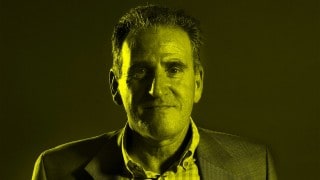Ein guter Freund und Kollege von mir, der indisch-amerikanische Umweltanalyst Indur Goklany, glaubt, dass der politische und geistige Abstieg Europas auch seine guten Seiten habe - zumindest was die Entwicklungsländer betrifft. Denn Milliarden von Menschen in den armen und Entwicklungsländern könnten sich weder den europäischen Kulturpessimismus noch die elitäre Umweltpolitik eines immer mehr vergreisenden Europas leisten:
In a recent op-ed Robert Kagan laments that (Western) Europe is sliding into irrelevance. But that might be the best thing for the rest of the world.
Don’t get me wrong, the world owes plenty to Europe. It’s given the world great art, architecture, literature, and music. It’s also given the world the ideas of universal education, the scientific method, research institutions, property rights, rule of law, democracy, religious freedom, and freedom of thought and expression, among other things. These ideas and institutions coalesced to power the engine of progress that drives the economic and technological development that have improved human well-being — not only in Europe but elsewhere — to levels far beyond what our ancestors could have imagined. Consequently, today we live longer, healthier, more educated, freer, and wealthier than ever before. But for the past century, Europe seems determined to undo all the good it’s ever done.
Europe gave the world the ideologies of Fascism and Marxism, which were responsible — or provided rationalizations — for 100–150 million deaths worldwide, including many outside Europe, most notably in China, Cambodia and North Korea. Then in a few short decades, despite having risen Phoenix-like from the ashes of destruction of World War II, instead of brimming with optimism, Europe has taken a decidedly pessimistic turn.
It no longer believes in progress. Its birth rate has dropped below replacement rates, yet, despite its protestations of equality, fraternity, secularism, and respect for human rights, it’s unwilling or unable to welcome or integrate immigrants of different colors or religious backgrounds into its societies. And one by one it’s abandoning the great ideas that brought it, and the rest of the world, progress, and advanced human well-being.
Its political leadership, although democratically elected, has abandoned democracy in its pursuit of a united Europe. The more the idea of the EU fails in democratic tests — most recently in Ireland — the more devious its politicians’ machinations to bypass popular approval.
It has abandoned scientific inquiry, relying instead on mantras such as the “science is settled.” Having abandoned science, it now relies on superstition, manifested in the notion of a global-warming-triggered apocalypse of Biblical proportions if average temperatures exceeds 2 degrees Centigrade above pre-industrial levels — an apocalypse complete with death, disease, pestilence, droughts, famines and floods. Not only is there no evidence for this, this superstition persists despite the current reality that more Europeans die in winter than in summer, Europe’s long history of misery and want during cold periods and plenty during warm eras, and that even as media coverage of extreme weather events becomes more compelling and ubiquitous, globally the deaths and death rates from such events are in long term decline. If Europe had spent a fraction of the resources in adapting to climate change as it did on complying with the futile, but politically-correct Kyoto Protocol, it might have reduced by thousands the death toll of its 2003 heat wave.
Europe is now on the verge of abandoning the quest for technological progress, preferring instead to be ruled by the so-called precautionary principle which, as applied by Europe, actually increases human misery and death. It does this by discouraging, if not vetoing, new and safer technologies that could displace older and less safe technologies on the grounds that “safer” is not good enough — it has to be absolutely safe.
The precautionary principle was used to justify relinquishing its use of DDT, which was easy, because Europe had already conquered malaria. It is also used against genetically modified crops. The misapplication of the precautionary principle, coupled with its abandonment of scientific inquiry evident in the torching and destruction of experimental trials on genetically modified crops and its reliance on superstition, has resulted in a de facto ban on such crops in most of Europe. But giving up such crops isn’t hard either. Western Europe is well fed — in fact today it worries more about obesity than hunger — and its farmers’ excessive productivity is actually a drag on its taxpayers. Some Europeans would also give up nuclear and coal, but that would actually be giving something up, so protestations to the contrary, that will come about only after renewable energies mature and are better able to pay for themselves without subsidies.
But worst of all, Europe is once again exporting dangerous, misanthropic ideas, which unfortunately are echoed even in the US where many are in thrall of European ideas, no matter how ill-conceived. These ideas are couched in doublespeak, such as the European version of the precautionary principle, which could kill as many people as the failed ideologies of Fascism and Marxism.
Europe talks endlessly of helping developing countries and offering token amounts of aid but then refuses to reform its agricultural policies which would do a lot more for helping the latter help themselves. At the same time it bemoans the new prosperity of long-suffering Asia that has lifted over a billion out of a poverty that Europe has not known since even before the French Revolution because it’s enabled by and rides on greater energy use. And for that, some Europeans threaten punishment through carbon tariffs.
But energy use and economic development are inextricably linked not only in China and India but in Europe and elsewhere. Even as energy use fueled economic development, it freed human beings from back-breaking physical labor, allowed women to escape the drudgery of household work, equalized economic opportunities for women, reduced the need for child labor, liberated animals from being our beasts of burden, and enabled brains to displace brawn, laying the foundation for a less energy-intensive economy.
Europe campaigned actively, but fortunately unsuccessfully, to ban DDT. Despite this, African nations, deferring to European “expertise” on matters technological while fearing a European boycott of their agricultural exports if even trace amounts of DDT are found on them, have been slow to adopt DDT to combat malaria — fears that Europe did nothing to dispel and may, in fact, have actively encouraged. For the same reasons, Africans have been reluctant to turn to genetically modified crops to reduce hunger and malnutrition. And once again, Europe is standing silently by if not actively discouraging the use of genetically modified crops.
For context, consider that over 6 million people die each year from malaria, hunger and malnutrition, a toll that annually rivals that of the entire Holocaust. Yet Europe has done little to help or reassure Africa in this regard, thereby abandoning one of the Holocaust’s most important lessons, namely, inaction can be no less culpable than active participation.
Europe may be able to walk away from further economic and technological development, but the rest of the world can’t afford to, not if it values human and environmental well-being.
An irrelevant Europe could save innumerable lives in the developing world. And that might be best for this world.
http://www.cato-at-liberty.org/2008/06/23/an-irrelevant-europe-best-for-the-world/









